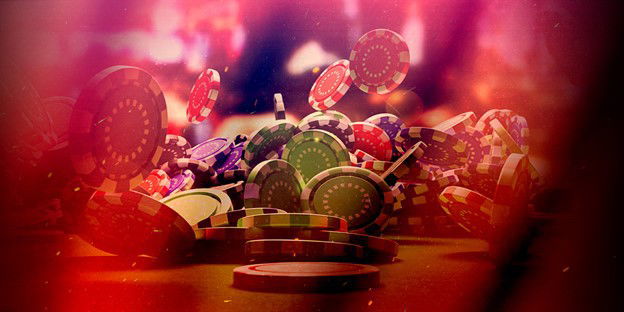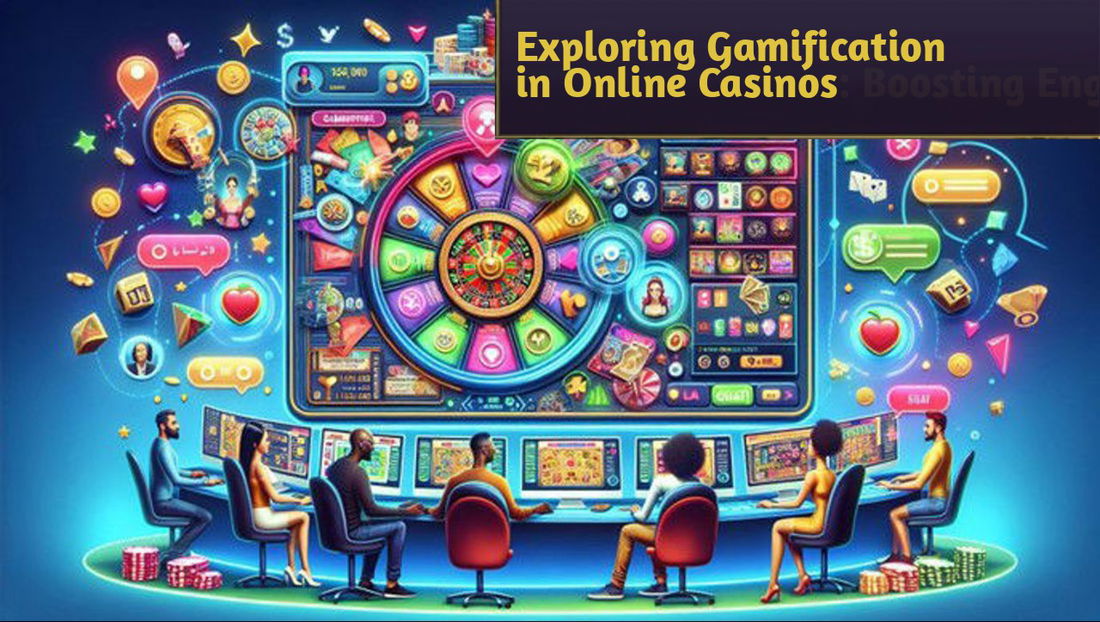Casino games have captivated human imagination for centuries, providing excitement, tension, and the thrill of risking it all for a chance at fortune. From ancient dice games to modern-day digital gambling, casino games have evolved in ways that reflect both societal changes and technological advancements. One such game that has captured the attention of modern players is Crazy Time, a dynamic live game show that blends chance with entertainment. For those who want to experience the action firsthand, you can play Crazy Time and even download the game for your mobile device, making it easy to indulge in this thrilling game anywhere, anytime.
Ad
In this article, we’ll look back through time, exploring how casino games have developed from their humble origins to the digital age. We'll trace the history of gaming from ancient civilizations to today’s high-tech casinos.
1. The Ancient Beginnings of Gambling
Gambling is one of humanity's oldest activities, with evidence of early forms of betting and games of chance stretching back thousands of years. The first gambling games likely took place in ancient civilizations, where people wagered on the outcomes of dice rolls or other rudimentary games of luck.
Ancient Mesopotamia: Some of the earliest gambling artifacts, including six-sided dice, were discovered in Mesopotamia (modern-day Iraq), dating back to around 3000 BCE. These dice were likely used for divination and gambling, making them the precursors to modern casino games.
Ancient China: Around 2300 BCE, the Chinese played games that involved tiles and rudimentary lottery systems. In fact, it’s believed that money from state-sponsored gambling was used to fund significant projects such as the construction of the Great Wall of China. Early card games, the ancestors of today’s poker and blackjack, also originated in China.
Ancient Rome and Greece: Gambling was a popular pastime in both Roman and Greek cultures. Romans were particularly fond of dice games and betting on gladiatorial combat, while Greeks played a variety of board games that required both skill and luck. However, laws were often implemented to curb excessive gambling, showing that the social implications of gambling were recognized even in ancient times.
2. The Evolution of Gambling in Europe
The Renaissance period marked the next significant evolution in the history of casino games, as gambling became a popular pastime among European elites.
The Birth of Card Games: Card games started to gain traction in Europe in the 14th century, with the first documented references to playing cards appearing in Italy and Spain. By the 16th century, various forms of card games had spread across the continent, evolving into recognizable games like baccarat, blackjack, and poker.
Roulette’s Origins: One of the most iconic casino games, roulette, is said to have originated in 17th century France. Invented by the mathematician Blaise Pascal during his attempts to create a perpetual motion machine, the game quickly became a staple of European casinos.
The First Casinos: The word “casino” itself is derived from the Italian word “casa,” meaning a small villa or summerhouse. The first known gambling house, the Ridotto, was established in Venice, Italy, in 1638. It was created by the government to control and regulate gambling, offering games like biribi and bassetta to wealthy patrons.
3. Casino Games in the New World
As European settlers brought their culture to the New World, they also brought their love for gambling. In colonial America, gambling was widespread, with early settlers enjoying a variety of betting games.
Riverboat Gambling: In the 19th century, riverboats on the Mississippi River became popular venues for gambling. Professional gamblers would travel up and down the river, entertaining passengers with card games and other betting activities. This period also saw the rise of poker, which evolved from earlier European card games.
Ad
The Gold Rush and the Wild West: During the mid-1800s, the California Gold Rush fueled gambling fever in the American West. Saloon gambling became a key feature of frontier towns, where poker, faro, and dice games attracted miners, cowboys, and outlaws alike.
The Rise of Las Vegas: The early 20th century saw the rise of Las Vegas, Nevada, as the gambling capital of the world. In 1931, Nevada legalized gambling to boost its economy during the Great Depression. The first casinos in Las Vegas were small, but by the 1950s, the city had transformed into a world-class gambling destination, attracting celebrities, tourists, and high rollers from around the globe.
4. The Modern Casino Era

With the arrival of the digital age in the late 20th century, the casino industry underwent another dramatic transformation.
The Rise of Online Casinos: The advent of the internet in the 1990s revolutionized the way people gambled. Online casinos allowed players to access their favorite games from the comfort of their homes. Popular games like slots, blackjack, and roulette were digitized, enabling millions of players worldwide to participate in real-time gambling. The rise of online platforms also led to the development of modern games like Crazy Time, which combines live-action elements with interactive gameplay.
Mobile Gaming: The explosion of smartphone usage further propelled the online gambling industry. Today, players can access casino games at any time through mobile apps, such as the one available for Crazy Time at https://crazytimebd.net/download-app/. Mobile gaming allows for greater accessibility, offering a seamless experience for players on the move.
Live Casino Games: One of the most exciting recent innovations is the rise of live casino games, where real dealers host games in real-time via video streams. Games like Crazy Time allow players to enjoy the excitement of a live game show from the comfort of their home or mobile device, offering the perfect blend of entertainment and gambling.
5. The Future of Casino Games
As technology continues to advance, so does the potential for the future of casino games. Here are some trends that will likely shape the casino gaming landscape in the coming years:
● Virtual Reality (VR) Casinos: With VR technology becoming more sophisticated, virtual casinos are emerging as the next big thing. These VR casinos provide players with immersive experiences where they can walk through virtual gambling halls, interact with dealers, and play games in a fully realized 3D environment.
● Cryptocurrency and Blockchain: The integration of cryptocurrency into casino platforms is making transactions faster and more secure. Blockchain technology ensures transparency in game results, ensuring that players can verify the fairness of every game they play.
● Augmented Reality (AR) in Gambling: AR is set to blur the lines between the real world and digital gaming. Imagine playing a card game where virtual cards and chips are projected onto your living room table. AR will take casino gaming to new heights by combining reality with digital elements.
Ad
Conclusion
The history of casino games is as rich and diverse as the games themselves. From ancient dice games played in Mesopotamia to the digital platforms of today, casino games have continually evolved, reflecting changes in society, technology, and culture. With innovations like Crazy Time, which players can easily access via the app, the future of casino gaming promises even more excitement and interactivity. As we look ahead, the fusion of technology and gambling will continue to shape the industry, offering players thrilling new ways to roll the dice and try their luck.





— Comments0
Be the first to comment